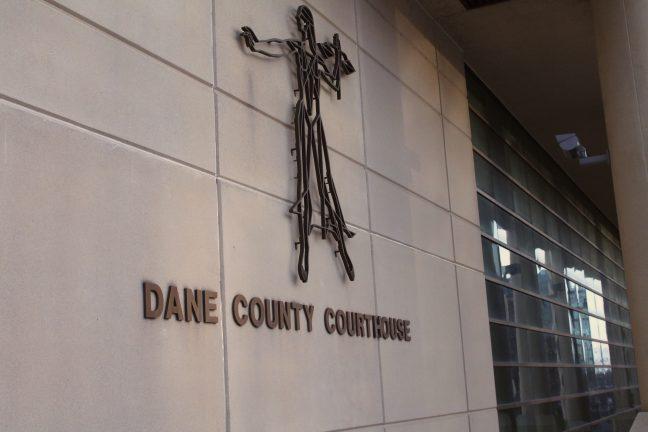Dane County leadership formalized a criminal justice reform package Aug. 14 aiming to end racial disparities and inequitable access to justice.
The package, which was put forward in late July by Dane County Board Chair Analiese Eicher and Supervisor Shelia Stubbs, sought to create alternatives to the currently broken criminal justice system, Stubbs said.
“This is one of the most critical pieces of legislation, given the conditions that the state of Wisconsin is in,” Stubbs said. “Wisconsin has been the worst state to raise a Black family, and at one time, Dane County was the worst county in the United States to live for Black families.”
As a policy-making body, Dane County leadership took a legislative approach to dismantle these disparities. Their initiatives thus rely on the engagement and collaboration between many of the actors within the criminal justice system, Eicher said.
The resulting reform package was formalized into Resolution 180, which Eicher said is currently undergoing committee review. After the committee process, which involves public comment and possible amendment, the resolution will move to the Board floor, according to Eicher.

“I think the biggest piece of Res-180 was that it formalizes the process of the county moving forward with both a triage and restoration center as well as a community justice center, which are two big alternatives to incarceration,” Eicher said.
A triage and restoration center would help address mental health challenges both inside and outside the criminal justice system, according to the resolution. Individuals would be able to access services by walking in, community referral or by drop off from law enforcement.
This would not only reduce the number of people with mental and behavioral health issues that are sent to jail, but it would also allow people to get the help they need, Eicher said.
Madison City Council approves landmark civilian oversight measures of police conduct
“If you’re experiencing a mental health crisis, do you really need to be in jail if you’re not committing a crime? Absolutely not,” Eicher said. “Do you need help? Absolutely. Do we have a place currently where people can go to get that assistance? We don’t.”
Eicher said the community justice center would feature housing, peer mentoring and educational and restorative justice services, according to the resolution. Reaching and serving people with resources like these would help reduce the number of crimes and offenses by preventing them from happening in the first place.
Further, a community court within the community justice center would provide benefits to the offender, victim and community a traditional court system could not offer, Restorative Justice Project Director Jonathan Scharrer said.
“It gives the victims opportunities to have a much greater voice and control of the outcome, as well as for the community to repair harm or redress needs that were created as a result of crime,” Scharrer said. “For respondents themselves, a benefit is that there wouldn’t be any CCAP entry, so that helps prevent some of those collateral consequences that result from a CCAP entry around obtaining employment or housing.”
Protesters march down State Street to protest police brutality, white supremacy at UW
Other initiatives within the resolution aim to further the system’s transparency by urging all county law enforcement agencies to collect and share data on race for all traffic stops with the Criminal Justice Council Research and Innovation team on a quarterly basis, Stubbs said.
The resolution also urges the County Executive and the Dane County Department of Administration to hire an information management position to ensure regularly updated information. Additionally, the resolution outlines a partnership with the UW System to hire a student to serve as the Criminal Justice Council data apprentice, Stubbs said.
“It’s hard to manage what we can’t measure,” Eicher said. “Being able to measure and see these items and data on a regular basis, I think, is incredibly important.”
Criminal justice reform is nothing new to Dane County. Through years of community-involved workgroups and committee recommendations, the county has already achieved most of the “low-hanging fruit” reform, Eicher said.
Alternatives for incarceration are the next step, according to Stubbs, but Resolution 180 will only be successful if their partners within the criminal justice are willing to engage.
“I think my hope is that we get back to this place where we understand that we have this shared humanity and that we need to be looking out for each other and not just ourselves,” Eicher said. “I think that if we can get back to that place, we will be able to move toward some of these restorative and diversion opportunities quicker.”


